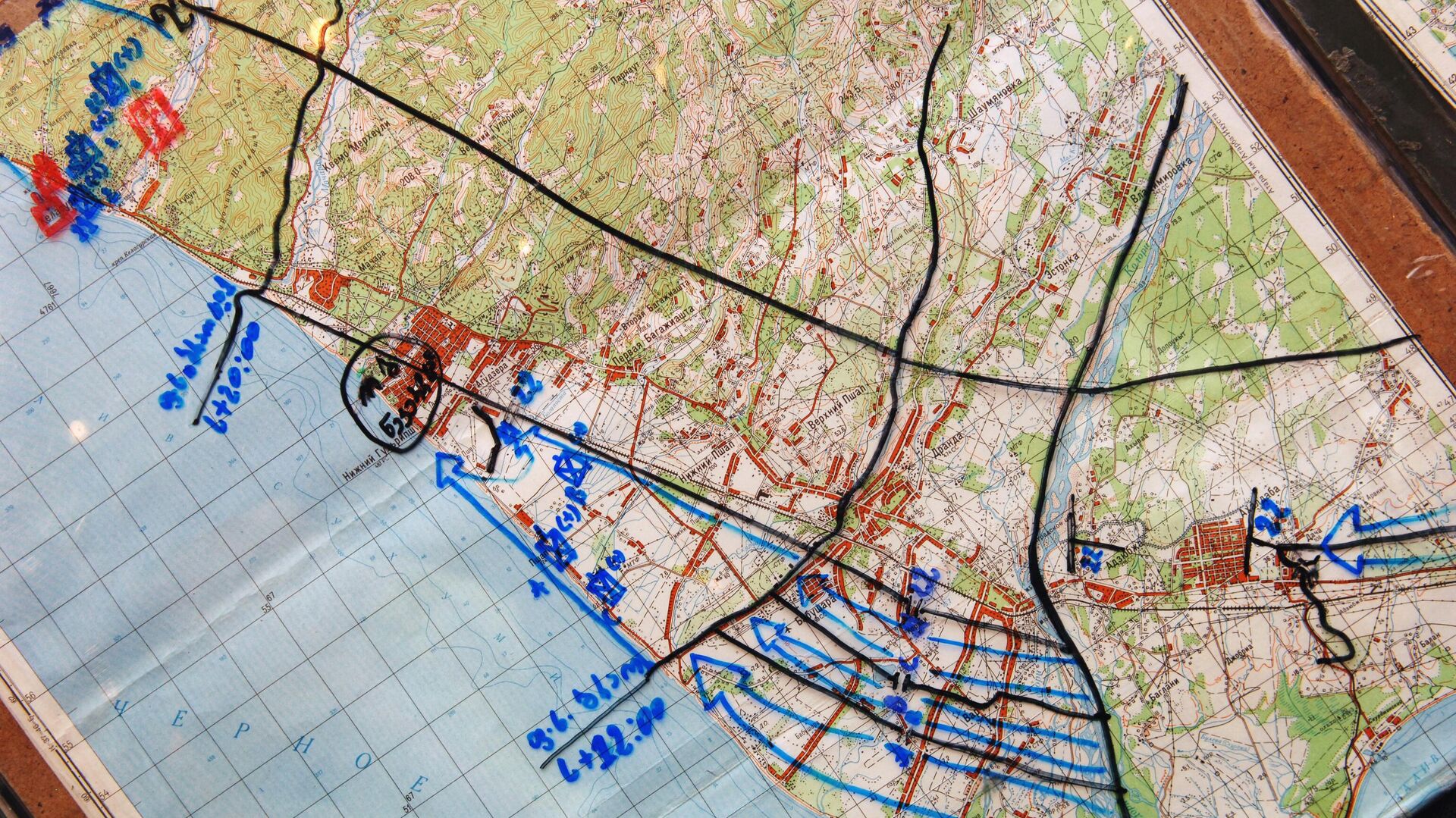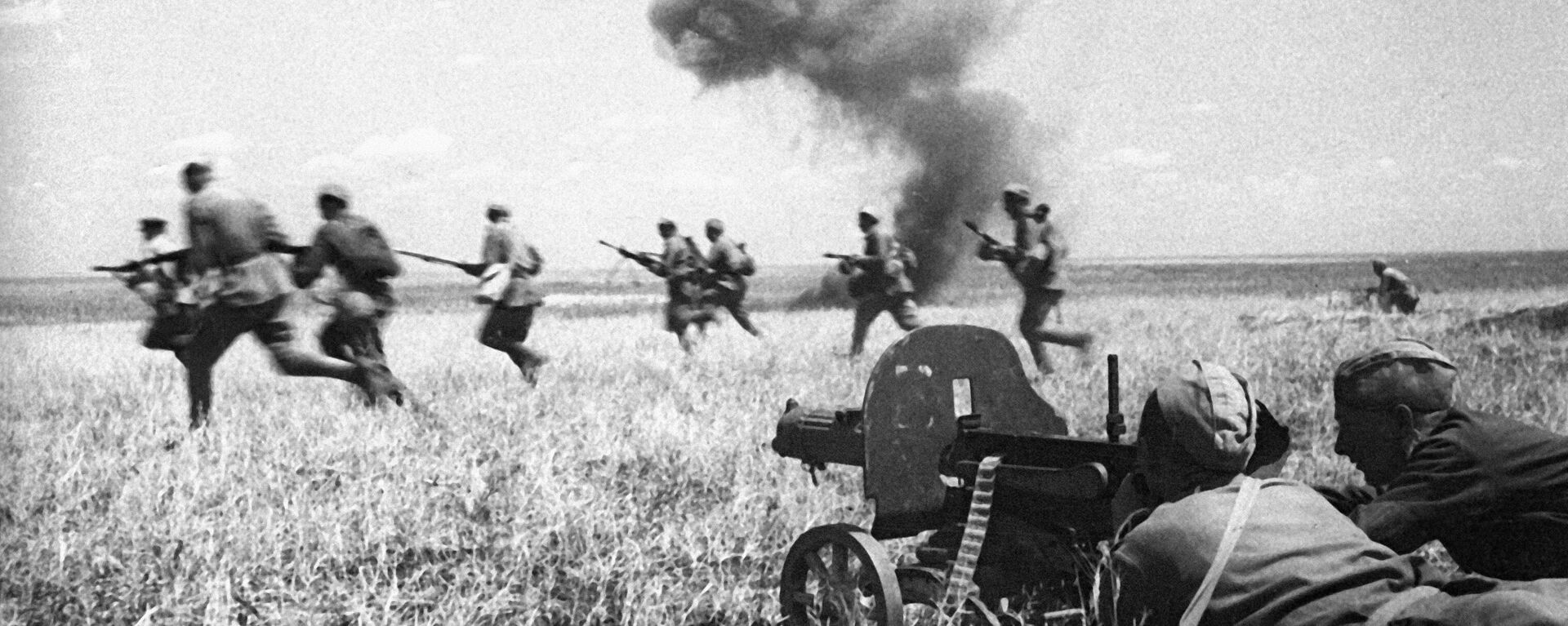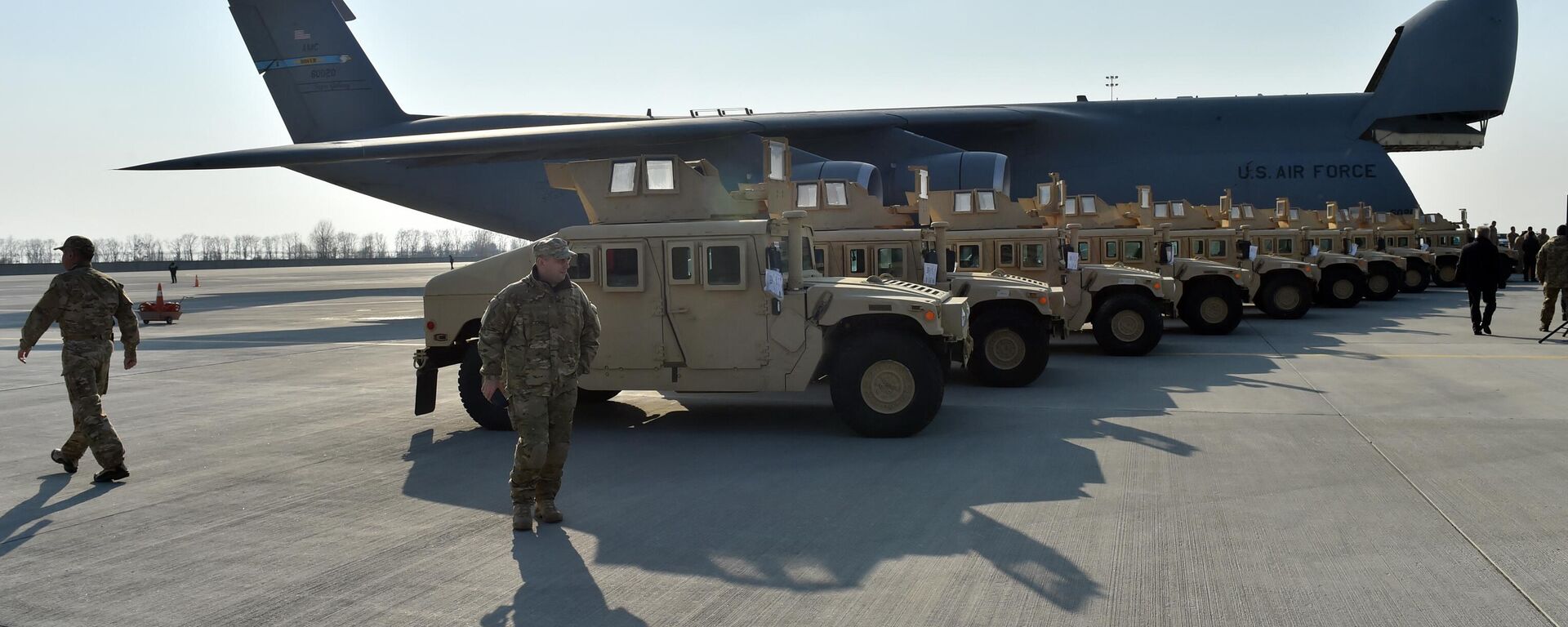https://en.sputniknews.africa/20231105/1063330026.html
Military Intelligence Day: How Russia's Intel Hunters Determine Fates of Entire Fronts
Military Intelligence Day: How Russia's Intel Hunters Determine Fates of Entire Fronts
Sputnik Africa
Accurate military intelligence is vital to frontline commanders, determining the outcome of battles and preventing troops from being put in harm's way. Russia... 05.11.2023, Sputnik Africa
2023-11-05T08:00+0100
2023-11-05T08:00+0100
2024-04-25T10:22+0200
russia
armenia
belarus
soviet union (ussr)
intelligence
national holiday
military
russian armed forces
russian investigative committee
international
https://cdn1.img.sputniknews.africa/img/07e7/0b/05/1063330206_0:157:3083:1891_1920x0_80_0_0_33d71a1928f7d7a531bdf32410fada72.jpg
On November 5, 1918, following the Russian Revolution, the Registration Directorate was established in Petrograd (now St. Petersburg) to coordinate intelligence services within the newly formed Red Army.The Directorate underwent several reorganizations during the interwar period and in 1942 evolved into the Main Intelligence Directorate of the Red Army General Staff, known by its familiar acronym, the GRU.The GRU’s job included a long list of duties, from the collection of intelligence deemed useful for the military, to counterintelligence, and, during World War II, assisting in sabotage operations against Axis forces in the enemy rear, military encryption and decoding operations, editing and publishing, wartime censorship and logistical support. Before and during the war, the agency was also entrusted with the collection of high-level, strategic military intelligence abroad, as well as military-technical information about the latest military-related technological developments among leading world powers and potential adversaries.After the Second World War, the technical aspect of the agency’s mission came to include radio-electronic and space-based intelligence collection.The GRU would play a major role in furthering Soviet interests abroad during the Cold War, and engaged in friendly competition with the KGB, the Soviet Committee for State Security, in intelligence and counter-intelligence operations.For most of its history, the GRU did not enjoy a formal professional holiday. It wouldn’t be until the year 2000 that a holiday was established, and 2006 that the date of November 5 was officially chosen to mark the occasion. Along with Russia, the military intelligence services of Armenia, Belarus and Kazakhstan also mark their professional holiday on November 5.From there, “all other tasks” are set, according to Klupov, whether it be uncovering enemy forces, figuring out their condition, intentions, positions, the grouping of forces, their strong and weak points, what they plan to do in the near future, etc.“The number of tasks can be infinite,” the veteran stressed, with intelligence units designed to engage in all kinds of intelligence collection accordingly.One cannot take a step if one’s eyes or ears are closed or one loses their ability to feel. “The same goes for the Army and the troops. If you close your eyes and ears, the army sees nothing and hears nothing. Any step can mean banging your head against the first wall you come across. That’s the importance of intelligence to the military,” the veteran noted.In wartime, battles consist of five basic, fundamental actions, in Klupov’s words, starting with reconnaissance, “determining where the enemy is, what he is doing and how he’s doing. The second consists of defeating the enemy through fire. Third is maneuvering of troops, their direct actions. Fourth is command and control and fifth is comprehensive support.”The approach to battlefield reconnaissance is “changing,” as are its forms and methods, resulting in changes to the organizational and staffing structures of intelligence units, with the main mission now becoming the timely registration and analysis of information collected by technical means, whether through drones or electronic reconnaissance, radars, artillery counterbattery systems, etc., the observer summed up.
https://en.sputniknews.africa/20231024/1063040656.html
https://en.sputniknews.africa/20231025/1063077002.html
russia
armenia
belarus
soviet union (ussr)
saint petersburg
Sputnik Africa
feedback@sputniknews.com
+74956456601
MIA „Rossiya Segodnya“
2023
News
en_EN
Sputnik Africa
feedback@sputniknews.com
+74956456601
MIA „Rossiya Segodnya“
Sputnik Africa
feedback@sputniknews.com
+74956456601
MIA „Rossiya Segodnya“
russia, armenia, belarus, soviet union (ussr), intelligence, national holiday, military, russian armed forces, russian investigative committee, international, saint petersburg, history
russia, armenia, belarus, soviet union (ussr), intelligence, national holiday, military, russian armed forces, russian investigative committee, international, saint petersburg, history
Military Intelligence Day: How Russia's Intel Hunters Determine Fates of Entire Fronts
08:00 05.11.2023 (Updated: 10:22 25.04.2024) Accurate military intelligence is vital to frontline commanders, determining the outcome of battles and preventing troops from being put in harm's way. Russia celebrates Military Intelligence Day on November 5 each year to honor professionals involved in the collection, analysis, and evaluation of military intelligence.
On November 5, 1918, following the Russian Revolution, the Registration Directorate was established in Petrograd (now St. Petersburg) to coordinate intelligence services within the newly formed Red Army.
The Directorate underwent several reorganizations during the interwar period and in 1942 evolved into the Main Intelligence Directorate of the Red Army General Staff, known by its familiar acronym, the GRU.
The GRU’s job included a long list of duties, from the collection of intelligence deemed useful for the military, to counterintelligence, and, during World War II, assisting in sabotage operations against Axis forces in the enemy rear, military encryption and decoding operations, editing and publishing, wartime censorship and logistical support. Before and during the war, the agency was also entrusted with the collection of high-level, strategic military
intelligence abroad, as well as military-technical information about the latest military-related technological developments among leading world powers and potential adversaries.
After the Second World War, the technical aspect of the agency’s mission came to include radio-electronic and space-based intelligence collection.
The GRU would play a major role in furthering Soviet interests abroad during the Cold War, and engaged in friendly competition with the KGB, the Soviet Committee for State Security, in intelligence and counter-intelligence operations.
For most of its history, the GRU did not enjoy a formal professional holiday. It wouldn’t be until the year 2000 that a holiday was established, and 2006 that the date of November 5 was officially chosen to mark the occasion. Along with Russia, the military intelligence services of Armenia, Belarus and Kazakhstan also mark their professional holiday on November 5.
“In general, intelligence has two fundamental goals, from which tasks flow,” Rustem Klupov, a veteran of Russian military intelligence and military analyst, told Sputnik. “The first goal is to prevent the enemy from any unexpected actions. The second goal is to provide the command and staff with reliable intelligence in the interests of effective fire engagement and decision-making.”
From there, “all other tasks” are set, according to Klupov, whether it be uncovering enemy forces, figuring out their condition, intentions, positions, the grouping of forces, their strong and weak points, what they plan to do in the near future, etc.
“The number of tasks can be infinite,” the veteran stressed, with intelligence units designed to engage in all kinds of intelligence collection accordingly.
“Intelligence is divided by scale of reconnaissance into strategic, operational and tactical, by the use of troops: military, special, radio-electronic, space, air and sea; by technical means: radar, radio engineering, thermal imaging; by branch of the military: artillery, engineering, field forces, engineering, and special purpose,” Klupov explained. Put another way, “each branch and type of military service has its own intelligence organs. And everything starts with intelligence,” he emphasized.
One cannot take a step if one’s eyes or ears are closed or one loses their ability to feel. “The same goes for the Army and the troops. If you close your eyes and ears, the army
sees nothing and hears nothing. Any step can mean banging your head against the first wall you come across. That’s the importance of intelligence to the military,” the veteran noted.
In wartime, battles consist of five basic, fundamental actions, in Klupov’s words, starting with reconnaissance, “determining where the enemy is, what he is doing and how he’s doing. The second consists of defeating the enemy through fire. Third is maneuvering of troops, their direct actions. Fourth is command and control and fifth is comprehensive support.”
The observer points to the creation of modern reconnaissance technologies, particularly drones, as something that has “dramatically” and fundamentally changed the situation as far as battlefield reconnaissance is concerned, with drones accounting for as much as 90 percent of information collection activities in Klupov’s estimation, with effective reconnaissance no longer requiring risking troops sneaking into enemy territory. “It’s enough to send an unmanned aircraft, which, without risking anything apart from its fiery engine, performs the same tasks and does so much more efficiently,” given its bird’s eye view of the battlefield.
The approach to battlefield reconnaissance is “changing,” as are its forms and methods, resulting in changes to the organizational and staffing structures of intelligence units, with the main mission now becoming the timely registration and analysis of information collected by technical means, whether through drones or electronic reconnaissance, radars, artillery counterbattery systems, etc., the observer summed up.



